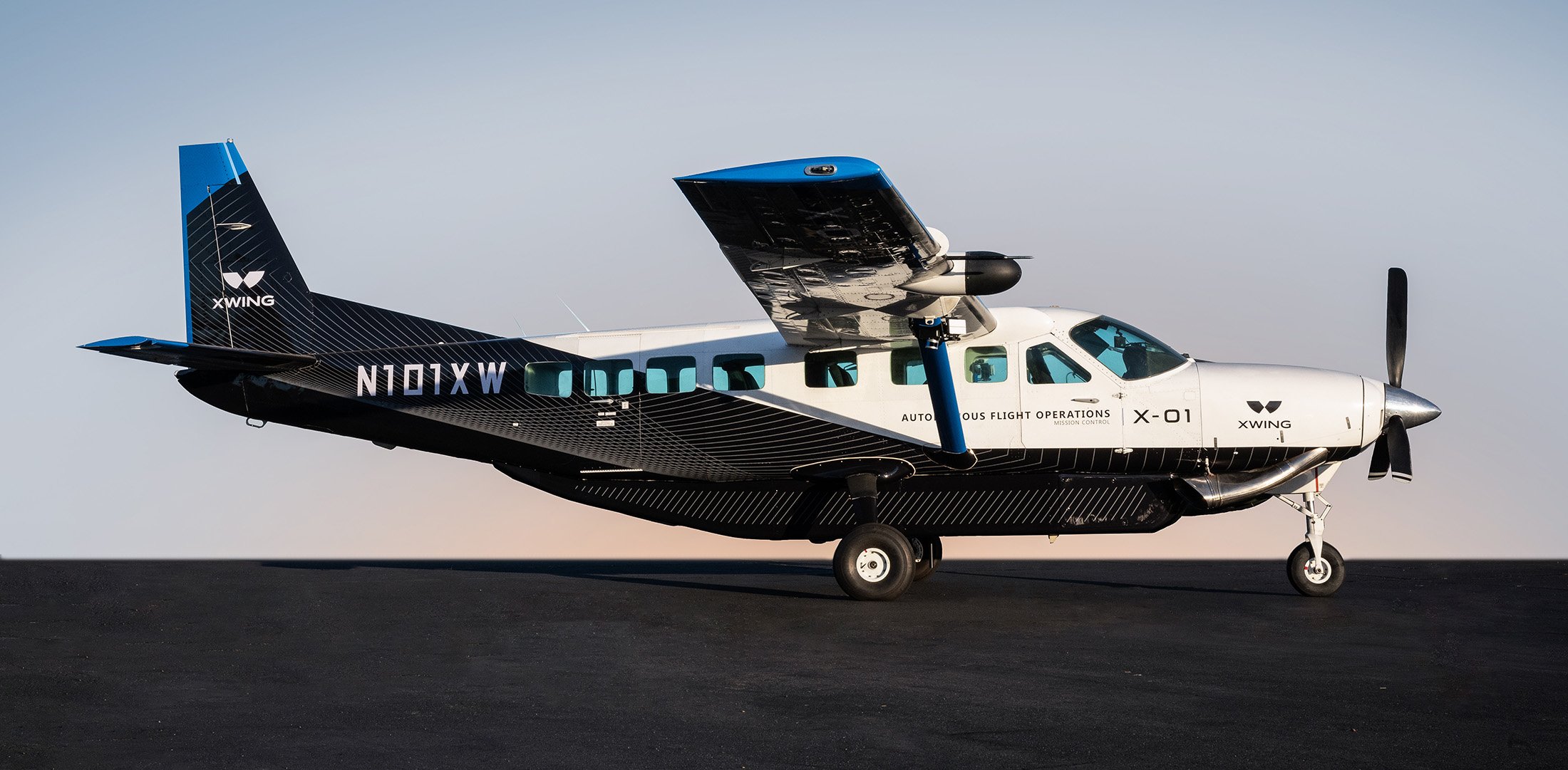As part of its effort to accelerate innovation in the aerospace industry, the U.S. Air Force will work with autonomous flight pioneer Xwing to help introduce self-flying airplanes into its defense fleet. The California-based tech start-up announced on Thursday that it has received a Direct to Phase 2 small business innovation research (SBIR) contract from the USAF’s Afwerx Prime program to study potential defense applications for remotely piloted aircraft.
Xwing is working to certify its “Superpilot” autonomous flight control system, which will enable remotely piloted flight operations using legacy aircraft converted under supplemental type certificates. So far, the company has installed and tested its Superpilot only on a Cessna 208B Grand Caravan, but just about any aircraft could be retrofitted with the Superpilot, which is designed to be vehicle-agnostic.
The company has been regularly conducting flight trials of its experimental Cessna for a few years, with a remote pilot fully operating each flight from a ground control station and an on-board safety pilot monitoring from the cockpit. Now Xwing is kicking off a 21-month flight test campaign with the USAF to collect feedback from defense officials and optimize the Superpilot for possible military uses.
According to Xwing, the USAF is interested in flying large, remotely piloted aircraft for applications like autonomous cargo deliveries and medevac missions. Part of Xwing’s work under this new contract will be to define the specific use cases for autonomous airplanes within the broader Department of Defense, Xwing founder and CEO Marc Piette told FutureFlight.
Piette explained that the benefits autonomous aviation brings to the commercial sector will also apply to the defense sector, though he declined to speculate on what sort of applications the USAF might decide to pursue. “Obviously, being able to fly vehicles without pilots on board is useful, especially if it's in a hostile environment,” he said. “You don't have to put pilots in harm's way.”
Xwing is among a handful of tech start-ups developing autonomous flight technologies to help alleviate the commercial pilot shortage. Whereas the FAA currently requires all commercial airplanes to have two pilots, self-flying airplanes could someday allow a single ground operator to remotely pilot multiple flights simultaneously with no crew on board—or at least with a reduced crew size.
According to Xwing, autonomous flight control systems tend to be more fuel efficient than human pilots, and they can improve safety by removing the risk of human error. Autonomous flight operations could also help to open up the regional air mobility market by enabling more flight routes to communities that are currently underserved by aviation and taking advantage of underutilized airport infrastructure. This would give small and rural communities better access to goods and services, like same-day express deliveries and medical supplies.
While Xwing’s technology could one day be applied to commercial airliners carrying passengers, the company has so far been focused on cargo transportation and regional air mobility. To help develop and refine the Superpilot, Xwing has been operating as a Part 135 air carrier since 2020. The company uses 35 unmodified Cessna Grand Caravans to conduct more than 400 cargo flights for UPS every week, and it employs data from those flights to train the Superpilot with machine-learning algorithms.
“Our autonomous flight system provides immediate value for cargo logistics,” Piette said in a statement announcing the USAF contract. “The collaboration with the Air Force on these missions will provide valuable insight around high-priority system capabilities and help us to advance our technology toward dual-usage in commercial and military operations.”
